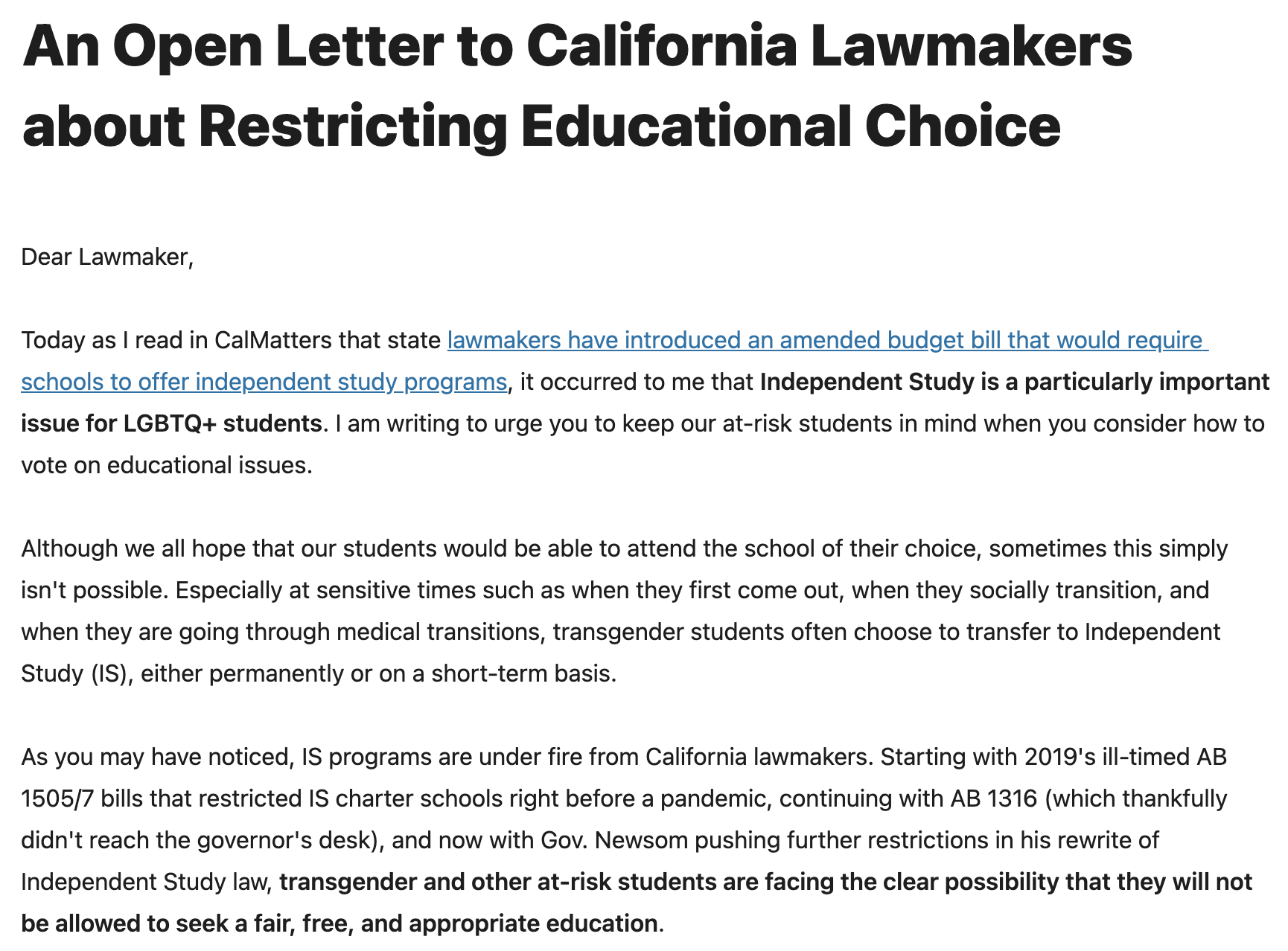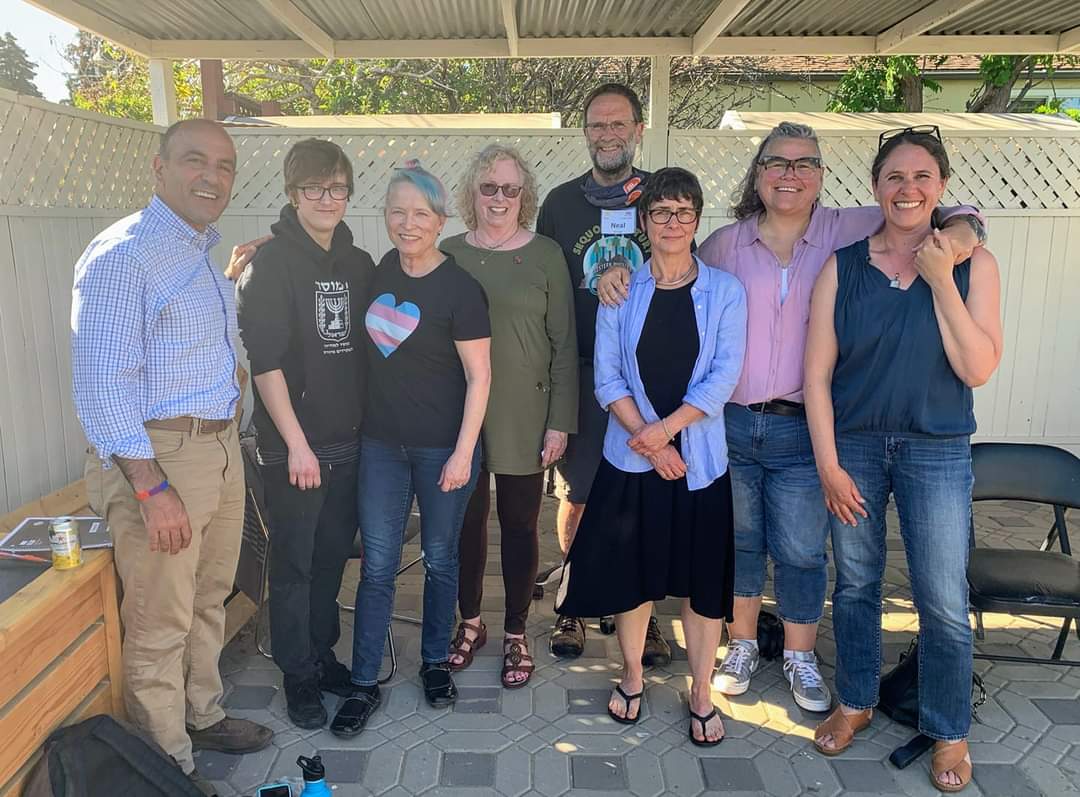Category: Culture
-
CA legislators want to restrict Independent Study. Here’s why that’s a bad idea.
UPDATE: The changes to the law were enacted. Our local homeschool programs have responded in a variety of ways, from struggling to comply by canceling or postponing services, to hoping that what they’re doing will be seen as compliance. And it turns out that it’s not only homeschoolers are who inconvenienced. (Who woulda thought?) Neighborhood…
-

An Open Letter to California Lawmakers about Restricting Educational Choice
Dear Lawmaker, Today as I read in CalMatters that state lawmakers have introduced an amended budget bill that would require schools to offer independent study programs, it occurred to me that Independent Study is a particularly important issue for LGBTQ+ students. I am writing to urge you to keep our at-risk students in mind when…
-

Transgender support: healthcare, education, and community
Recently, Rep. Jimmy Panetta reached out to PFLAG to suggest a listening session about issues faced by transgender people, their families, and their communities. The meeting took place in the back yard of the Diversity Center with representatives from PFLAG Santa Cruz County and the TransFamilies of Santa Cruz County,. We were graced with the…
-

Taking aim at alternative ed…again
UPDATE: I am pleased to say that AB 1316 is dead on the floor. Thanks to activists like Legislation Take Action for helping to raise awareness of this bill. However, the threat is ongoing. Read this piece about the proposed changes to independent study law. Read this piece about supporting educational choice for all students.…
-

As we progress, let’s not regress
I walked up to the front door of my health club and waited. The owner opened the door and beckoned me in; he was not armed with a touchless thermometer. “You can just walk in now,” he said. “Well, that makes your job easier,” I replied. “Yours, too!” he said. “Just scan your card and…